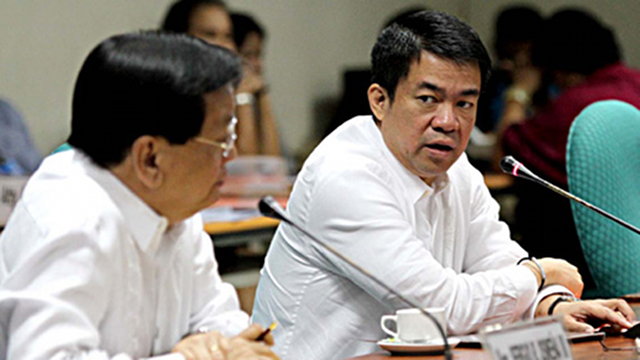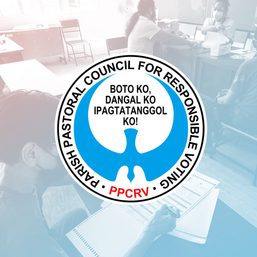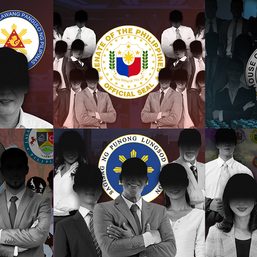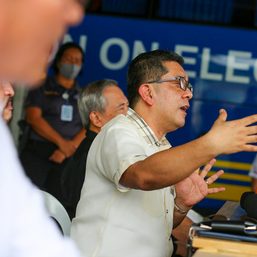SUMMARY
This is AI generated summarization, which may have errors. For context, always refer to the full article.

MANILA, Philippines – They don’t like political dynasties but they can’t agree on how to define these.
Senators and resource persons clashed on the definition in a Senate hearing on a bill that seeks to ban political dynasties.
In the hearing of the Senate Electoral Reforms Committee on Thursday, November 8, Sen Sergio “Serge” Osmeña III proposed his definition of political dynasties. For Osmeña, if an incumbent local official’s relative runs for office and wins in another locality, this is not a political dynasty. The senator is a member of the Osmeña dynasty of Cebu.
“What you should watch out for is the element of control or heavy political influence,” Osmeña said in an interview.
Others disagreed. Senatorial candidate Ricardo Penson said the law should ban family members from running for office, regardless of the place or position.
“The only definition remaining is family, which is very clearly defined under our family law. Husband and wife, father and mother, children and by affinity, the in-laws. We will be basing it on that definition of what family is,” said Penson.
Whatever the definition, former Vice President and former Sen Teofisto Guingona Jr said in the hearing that a law must be passed against political dynasties. Guingona filed a petition before the Supreme Court to order Congress to pass a law. (Guingona’s son and namesake is an incumbent senator.)
The 1987 Constitution bans political dynasties but Congress has yet to pass an enabling law. Bills have been pending in various congresses but failed to muster congressional support.
“There is a guarantee by the Constitution. It is therefore our duty as soon as possible to have it defined and mandated,” said Guingona.
‘People’s initiative only alternative’
Pending before the Senate is a bill by Sen Miriam Defensor Santiago. Read her bill here. Santiago’s definition of a political dynasty is when:
- a person married to an incumbent official or a relative within the 2nd civil degree of consanguinity or affinity holds or runs for office simultaneously with the official within the same province or that person occupies the same office immediately after the term of office of the incumbent official
- 2 or more persons who are married or related within the 2nd civil degree of consanguinity or affinity run simultaneously for elective public office within the same province even if neither is related to an incumbent elective official
Committee chairman Sen Aquilino “Koko” Pimentel III has noted that Santiago’s definition only applies to local races and must be more precise.
In the hearing, Commission on Elections Chairman Sixto Brillantes Jr reiterated his push for a people’s initiative for an anti-political dynasty law. He said the campaign entails the signature of at least 10% of all registered voters, and at least 3% in every legislative district.
Brillantes said he will lead the campaign after he retires.
“That’s the only alternative. If the legislators do not want to pass a law, taumbayan na lang (the citizens should do it).”
Political dynasties have become a big issue in the run-up to the 2013 midterm polls, with many clans vying for public posts.
President Benigno Aquino III himself has two relatives running for the Senate: his cousin Bam Aquino, and aunt-in-law Margarita “Tingting” Cojuangco.
Vice President Jejomar Binay’s daughter Nancy is also seeking a senatorial seat; his two other children are running for re-election as Makati mayor and representative. Senate President Juan Ponce Enrile’s son Jack, who is on his last term as Cagayan congressman, is also running for the Senate.
A study of the Asian Institute of Management Policy Center shows 70% of members of the House of Representatives are part of political dynasties. This compares to only 6% in the US Congress.
Critics have said that a political dynasty bill is doomed, with the reluctance of lawmakers to pass a bill that is against their interests. Malacañang has yet to come up with a stand on the issue. – Rappler.com
More on #PHVote, Rappler’s coverage of the 2013 elections:
Add a comment
How does this make you feel?




![[PODCAST] Beyond the Stories: Ang milyon-milyong kontrata ng F2 Logistics mula sa Comelec](https://www.rappler.com/tachyon/2021/11/newsbreak-beyond-the-stories-square-with-topic-comelec.jpg?resize=257%2C257&crop_strategy=attention)



There are no comments yet. Add your comment to start the conversation.